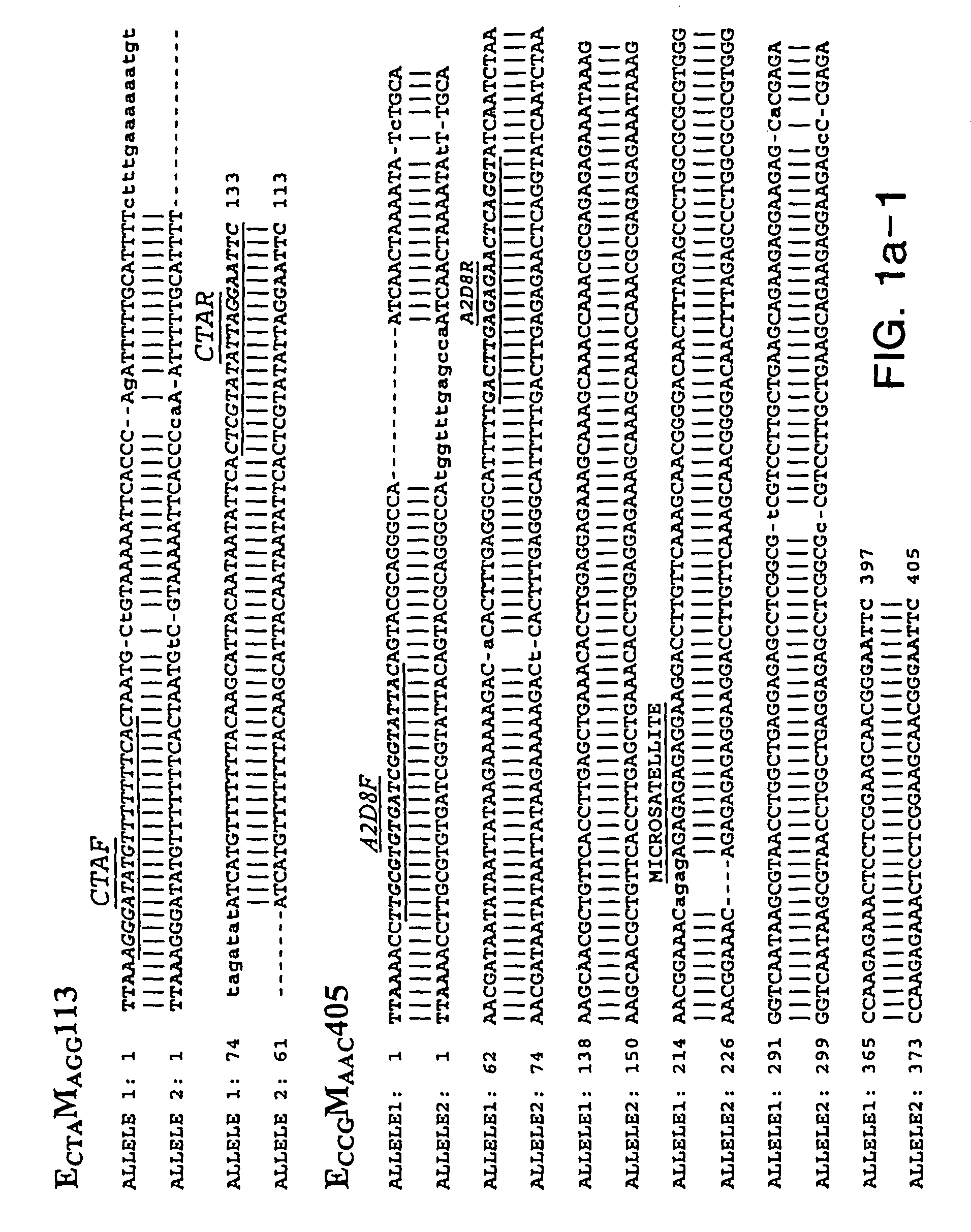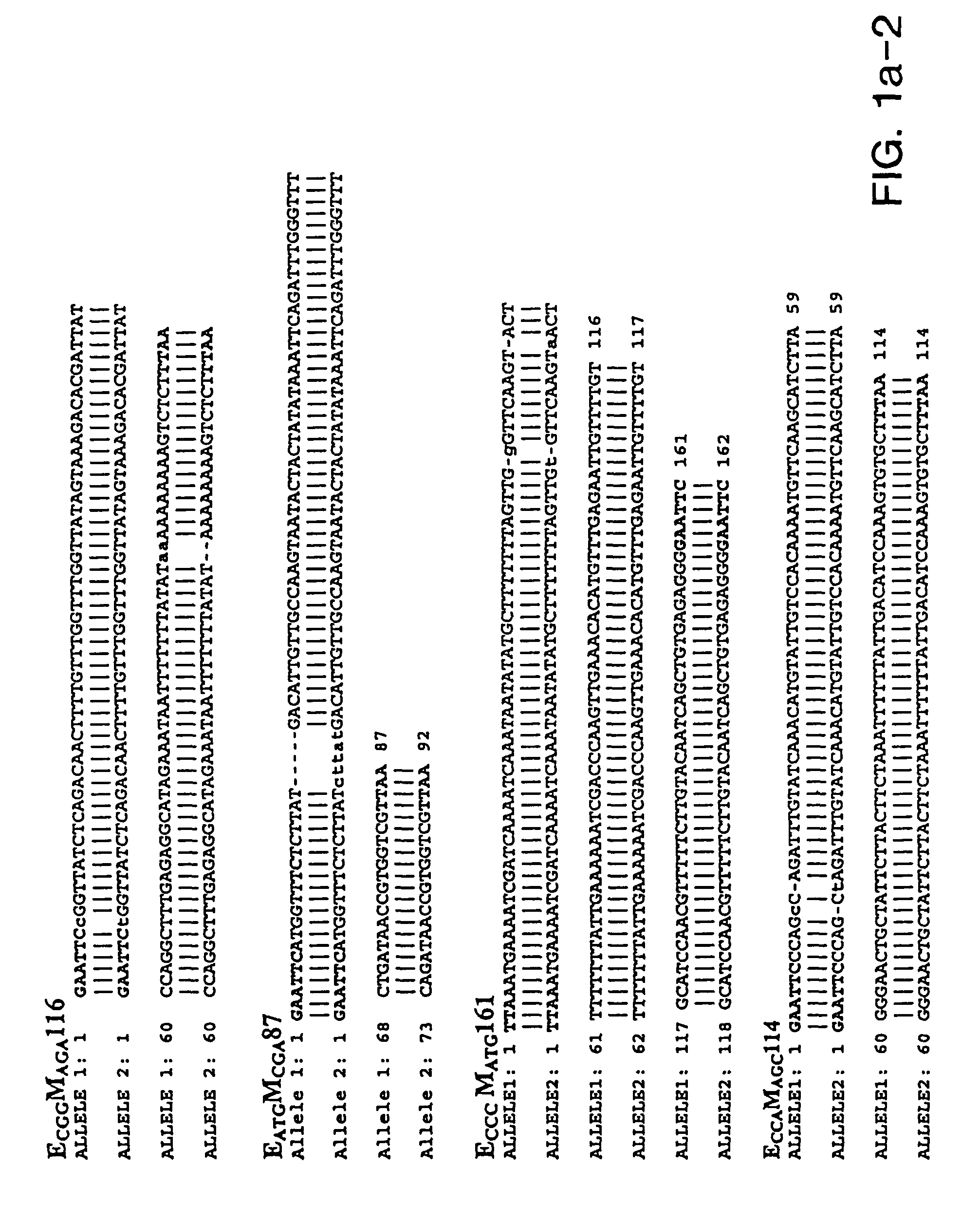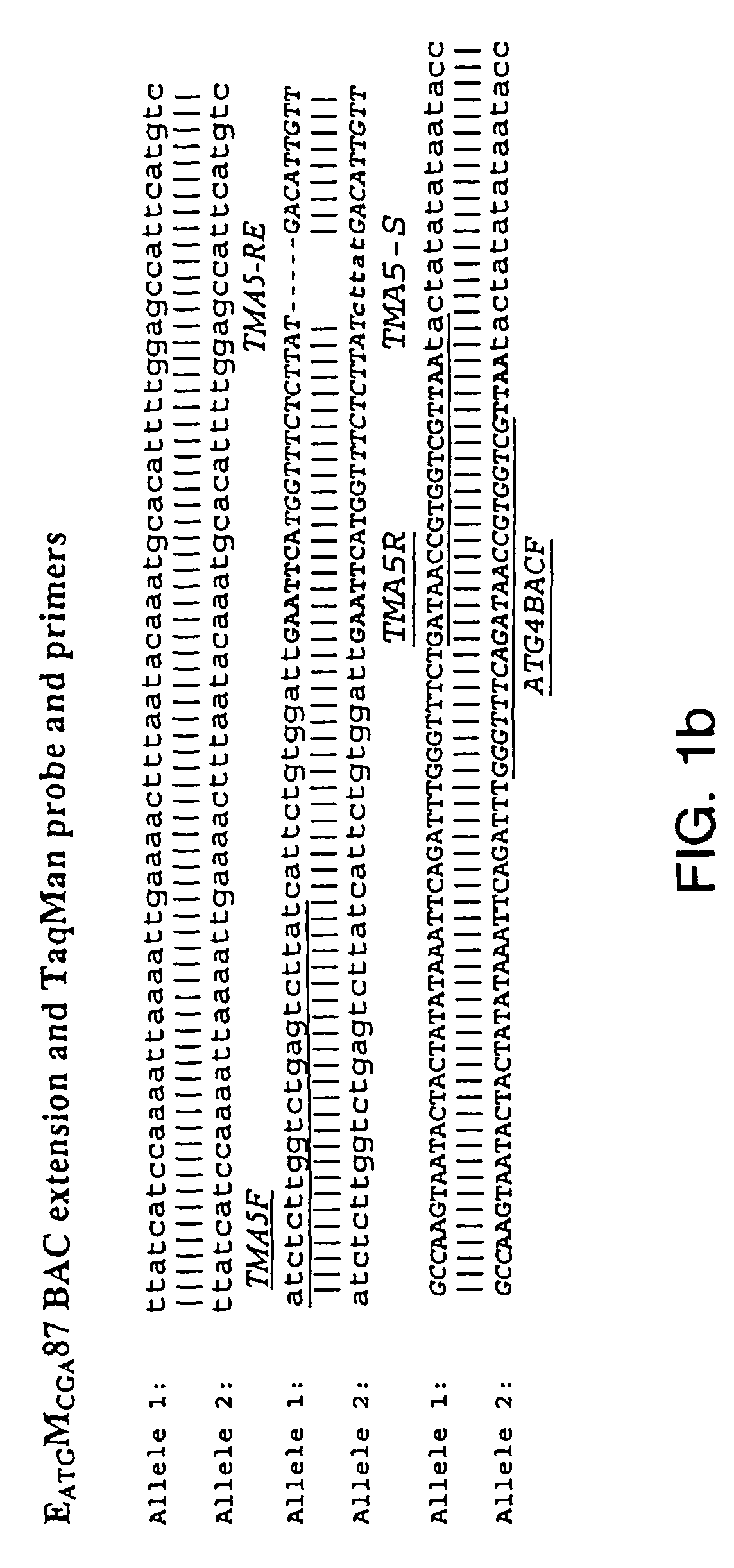Isolated soybean cyst nematode and soybean sudden death syndrome polypeptides
a soybean cyst nematode and soybean sudden death syndrome technology, applied in the field of plant breeding and plant genetics, can solve the problems of substantial soybean crop yield loss and incur additional time and resources
- Summary
- Abstract
- Description
- Claims
- Application Information
AI Technical Summary
Benefits of technology
Problems solved by technology
Method used
Image
Examples
example 1
Plant Material
[0296]A mapping population consisted of approximately 100 recombinant inbred lines derived at the F5 generation from a cross of ‘Essex’ (Smith & Camper (1973) Crop Sci 13:459) by ‘Forrest’ (Hartwig & Epps (1973) Crop Sci 13:287). The recombinant inbred line (RILs) population was advanced to the F5:13 generation from 300 plants per RIL per generation (Hnetkovsky et al., 1996). Forrest is resistant to the soybean cyst nematode (SCN) populations classified as race 3 and Essex is susceptible to all populations of SCN (Chang et al., 1997; Meksem et al. 1999).
example 2
SCN Female Index (FI) Determination
[0297]The number of white female cysts was compared on each genotype to the number of white female cysts on a susceptible control, such as Essex, to determine the female index (FI) for each population (Meksem et al., 1999). Seedlings were inoculated with 2000+ / −25 eggs from a homogenous isolate of H. glycines. All experiments used five single-plant replications per line. The mean number of white female cysts on each genotype and the susceptible control were determined and FI was calculated as the ratio of the mean number of cysts on each genotype to the mean number of cysts on the susceptible check.
example 3
Characterization of New Markers for SCN / SDS Resistance
[0298]Soybean genomic DNA used for AFLP analysis was extracted and purified using the Qiagen (Hilden, Germany) Plant Easy DNA Extraction Kit. Primary template DNA was prepared using the restriction enzymes EcoRI and MseI.
[0299]AFLP analysis was performed as described by Vos et al. (1995) Nuc Acids Res 23:4407-4414 except that the streptavidin bead selection step was omitted. PCR reactions were performed with using primer pairs derived from each of two sets of primers. Primers within EcoRI set all included the core sequence E: 5′-GAC TGC GTA CCA ATT C (SEQ ID NO: 115) with 1 or 3 base pair extensions. Primers of the Msel set have the sequence M: 5′-GAT GAG TCC TGA GTA A (SEQ ID NO:116) with 1 or 3 base pair extensions. The primer combinations (EA and MC) and (EC and MA) were used for pre-amplification of primary template. Three selective nucleotides per primer were used to generate AFLP fragments from the secondary templates. AFLP...
PUM
| Property | Measurement | Unit |
|---|---|---|
| Tm | aaaaa | aaaaa |
| temperature | aaaaa | aaaaa |
| length | aaaaa | aaaaa |
Abstract
Description
Claims
Application Information
 Login to View More
Login to View More - R&D
- Intellectual Property
- Life Sciences
- Materials
- Tech Scout
- Unparalleled Data Quality
- Higher Quality Content
- 60% Fewer Hallucinations
Browse by: Latest US Patents, China's latest patents, Technical Efficacy Thesaurus, Application Domain, Technology Topic, Popular Technical Reports.
© 2025 PatSnap. All rights reserved.Legal|Privacy policy|Modern Slavery Act Transparency Statement|Sitemap|About US| Contact US: help@patsnap.com



